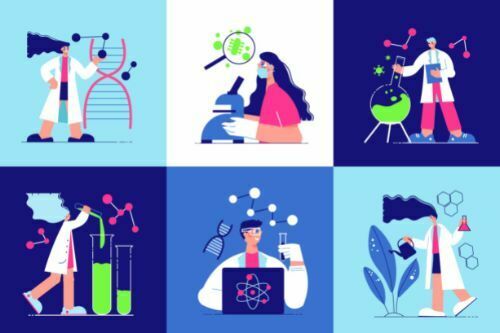Table of Contents
An overview of science
Admit it, most of us disliked science as children. We were required to use our brains to the fullest capacity on this subject. Physics, chemistry, and biology got tangled in our heads and left us with the choice of not liking them. But as we grew, our knowledge of science deepened. The great inventions by scientists are the reason we have a comfortable lifestyle. Science is defined as knowledge, fact, or information. When practically applied, science leads to new inventions and technologies. Science builds our curiosity and peaks our creative side. Even minor discoveries can contribute to the creation of history. Let’s get to the magnificent role science plays in our lives in this write-up about the wonders of science!
Why are science and technology critical in the 21st century?
Since the Industrial Revolution, the quest for scientific understanding, the application of engineering solutions, and continuous technological innovation have been major drivers of global economic growth.
Today, much of daily life in the United States and other industrialized nations results from investments in research. This is apparent in services such as transportation, communication, agriculture, education, and health sectors. Just think how different our daily lives would be without technological advances!
A day without our cell phones is unimaginable. Our schedule may get messed up without automobiles, the internet, or computers. We basically depend on these inventions made by science in our day-to-day lives.
The wonders of science in our daily life

The wonders of the world wouldn’t have come into existence without the wonders of science. The wonders of science are mentioned below, let’s have a look at them-
Teaching and learning
The smart class systems have replaced the old study methods that used board, chalk, and duster. Images of different concepts are shown with an explanation, making the process of studying more interactive. Students from remote areas who are unable to attend classes can also participate in online lectures. Computers and the internet are a technological gift from science, and everyone is equally benefited from them.
Medicine
Science and technology are a boon to the medical field. Combined, they have resulted in the development of cures and medicines for incurable diseases, significantly increasing the human lifespan. Many people suffered early deaths because there were no facilities for diagnosis and treatment in the past. Nowadays, machines have been created to accurately pinpoint diseases in the human body. This allows health practitioners to implement effective treatment strategies immediately!
Communication
Science has been used to create technologies such as fax machines, microphones, telephones, computers, mobile phones, and laptops. Communication has become much smoother and faster because of these advancements.
A person can communicate with people from vast distances to continue smooth trade and development. Emails and messages take seconds to be transferred from one person to another. We can communicate with our loved ones across continents!
Transportation
The invention of trains, bikes, cars, airplanes, and helicopters was a major contribution from science! This essay on science attempts to convey the importance of science and the inventions made by scientists.
These fantastic inventions by science and professionals save our time and energy!
Agriculture
Old farming practices have now taken a back seat, and new innovations are being implemented. The farmer’s workload has been reduced as a result of these technologies. There are new farming methods that can increase yields. Harvesters, threshers, irrigation pumps, and other farm machinery have also significantly reduced labor on the farm.
GIS (Geographical Information System) technology is primarily used to monitor fields. Photos are generated by GIS for agricultural necessities. Technological advancements in agriculture include sensors used to sense moisture and temperature. These advancements also include the use of artificial intelligence in the form of robots.
Major contributions by scientists that laid the foundation to today’s technology

Scientists, mathematicians, and engineers work day and night to make technological advancements happen. Though necessity is the mother of invention, innovation does not happen overnight. It takes time and effort.
The following scientists have made life-changing contributions to science and technology-
Michael Faraday (1791-1867) – Discovery of the phenomenon of electromagnetic induction
Faraday was a British inventor born as the son of a blacksmith. His major contribution was in the fields of electricity and magnetism. He invented the first electric motor and dynamo, demonstrated the relationship between electricity and chemical bonding, and discovered the effect of magnetism on light. Faraday discovered the peculiar behavior of certain substances in strong magnetic fields and named it diamagnetism. These are his notable contributions in the field of science.
Nikola Tesla (1856-1943) – Created the first Alternating Current system
Tesla was a Serbian engineer and inventor best known for his revolutionary contributions to electricity and magnetism in the late 19th and early 20th centuries. Tesla’s patents and theoretical work served as the foundation for modern alternating current electric power systems, such as polyphase power distribution systems and the AC motor. With this work, Tesla contributed significantly to the Industrial Revolution.
Tim Berners-Lee (1955- Present)- Contributions to the World Wide Web
Tim Berners-Lee is known as the creator of the World Wide Web. It was originally known as the WorldWideWeb but later; he renamed it Nexus to avoid confusion. He also created the first web browser, the hypertext markup language (HTML), and the hypertext transfer protocol (HTTP).
It all began in 1989 when he started working at CERN’s European Particle Physics Laboratory. Mike Sendall, his boss, had received a memo titled ‘Information Management: A Proposal’. He proposed sharing general information about accelerators and experiments at CERN and LHC and keeping track of these experiments in this memo. Tim simply knew that CERN had vast amounts of valuable information scattered throughout the facility and that it would be easier to find if it were all linked together in a way that made it accessible from any computer. This idea that Berner-Lee was proposing came to be known as the World Wide Web!
Here are some wonders of science that are undeniable!
- There are more stars in the universe than words ever spoken by all humans combined.
- There are more stars in the universe than words ever spoken by all humans combined.
- Every single bacterium, cockroach, and sparrow that has ever existed or every person, frog, and cucumber, owes its existence to a completely unbroken stream of DNA that extends from the earliest replicators to the most recent creatures that live today.
- The contributions of modern science to our well-being and comfort are astounding. Since the time of our great-grandparents, human life expectancy has nearly doubled as a result of scientific medicine and public health.
Key takeaways
- The wonders of science like medicine, television, and the internet have made our lives comfortable and smooth.
- The technological advancements in science by scientists like Michael Faraday, Nikola Telsa, and Tim Berners-Lee are noteworthy.
- The inventions of science help people around the globe across all aspects of their lives!
Looking to pursue a career in science? If so, please reach out to us for career guidance. We would be happy to assist you with your queries! You can even share your views about the above blog in the comments section below.
Liked this blog? Read next: Top 5 discoveries made by the father of science-Galileo Galilei
FAQs
Q1. Who can be considered the first scientist?
Answer – Aristotle is considered the first scientist by many.
Q2. Who is known as the father of modern science?
Answer – Galileo Galilei is known as the father of modern science.
Q3. Who is the scientist who invented computers?
Answer – Charles Babbage, an English mathematician and inventor, is credited with having conceived the first automatic digital computer.






